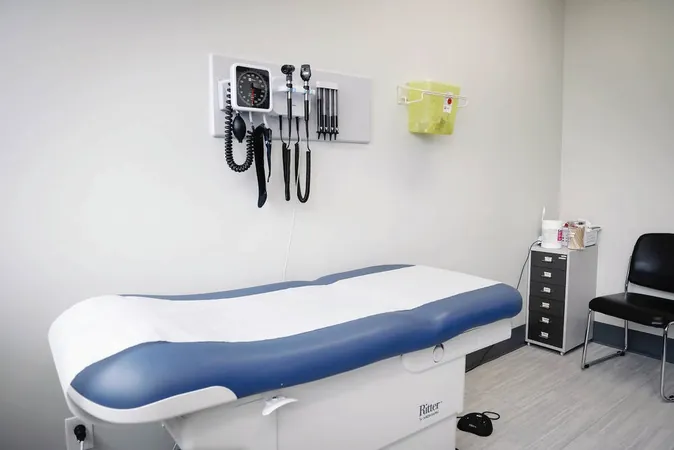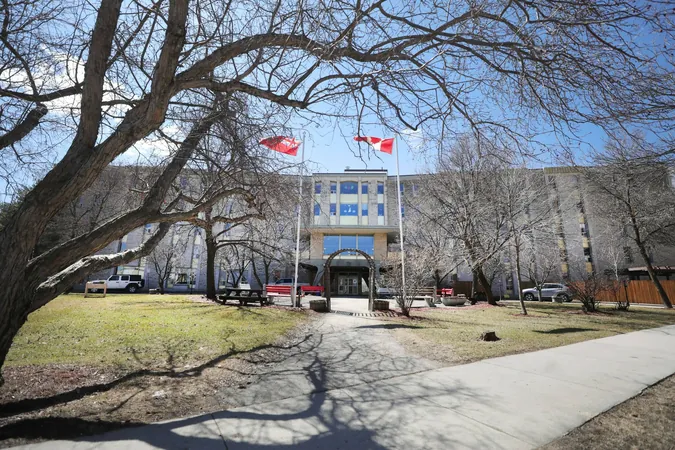
Alarming Surge in Respiratory Illnesses Hits British Columbia as the Holiday Season Approaches
2024-12-23
Author: Sophie
Rising Respiratory Illnesses
As British Columbia gears up for the bustling holiday season filled with social events, health officials are sounding the alarm over a significant rise in respiratory illnesses, including respiratory syncytial virus (RSV) and walking pneumonia, particularly among children.
Recent Statistics
A recent update from the B.C. Centre for Disease Control (CDC) reveals that RSV cases have surged by 10.3% compared to last week, with the majority of infections occurring in the Lower Mainland. Despite this concerning trend, flu cases are still relatively low, albeit showing an increase of nearly 7% from the previous week.
COVID-19 Update
In contrast, COVID-19 cases are on the decline, with hospitalizations and fatalities also decreasing. The CDC reports about 84 individuals hospitalized due to COVID-19, down from 92 last week and a higher count of 121 two weeks prior. However, health experts predict that the peak of respiratory illnesses this season is imminent, mirroring last year’s surge.
Recommendations for Residents
Consequently, residents, especially vulnerable groups such as older adults, young children, and individuals with compromised immune systems, are strongly encouraged to get vaccinated against the flu and COVID-19 if they haven't done so already.
Walking Pneumonia Concerns
Meanwhile, there’s a growing concern about walking pneumonia among children, alongside the rise in RSV cases. Often referred to as a mild lung infection, walking pneumonia is primarily caused by the bacteria Mycoplasma pneumoniae and is especially prevalent in children and adolescents. Unlike RSV, which is viral, walking pneumonia is bacterial in nature.
Public Health Surveillance
Public health does not track walking pneumonia cases meticulously; however, the CDC notes a notable increase in respiratory infections caused by Mycoplasma pneumoniae, particularly in individuals under 20 years old. B.C. Children's Hospital has reported a surge in young patients seeking emergency care since August, emphasizing the urgency of the situation.
Symptoms and Treatment
Symptoms of walking pneumonia include sore throat, sneezing, persistent cough, headache, mild chills, and low-grade fever. Treatment typically involves antibiotics or over-the-counter medications. Surveillance data indicates a heightened presence of Mycoplasma pneumoniae activity in British Columbia compared to the previous season, echoing trends in the U.S., where similar increases have been documented since late spring. The American CDC advises healthcare providers to remain vigilant about the rise in infections and the potential for antibiotic resistance.
Preventative Measures
Public health officials remind residents of preventative measures, such as frequent handwashing and staying home when ill. Parents are particularly advised to seek immediate medical attention if a child experiences a fever lasting longer than five days, or if any child under three months of age presents with a fever. Additionally, worsening coughs in children warrant professional assessment.
Conclusion
With the holiday season approaching, vigilance and proper health practices are crucial to mitigate the spread of respiratory illnesses in British Columbia. Stay informed and prioritize health to ensure a safe and joyful holiday celebration!









 Brasil (PT)
Brasil (PT)
 Canada (EN)
Canada (EN)
 Chile (ES)
Chile (ES)
 España (ES)
España (ES)
 France (FR)
France (FR)
 Hong Kong (EN)
Hong Kong (EN)
 Italia (IT)
Italia (IT)
 日本 (JA)
日本 (JA)
 Magyarország (HU)
Magyarország (HU)
 Norge (NO)
Norge (NO)
 Polska (PL)
Polska (PL)
 Schweiz (DE)
Schweiz (DE)
 Singapore (EN)
Singapore (EN)
 Sverige (SV)
Sverige (SV)
 Suomi (FI)
Suomi (FI)
 Türkiye (TR)
Türkiye (TR)